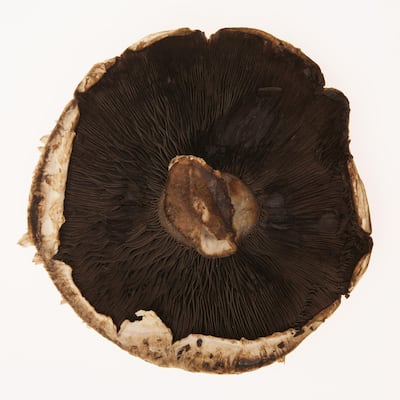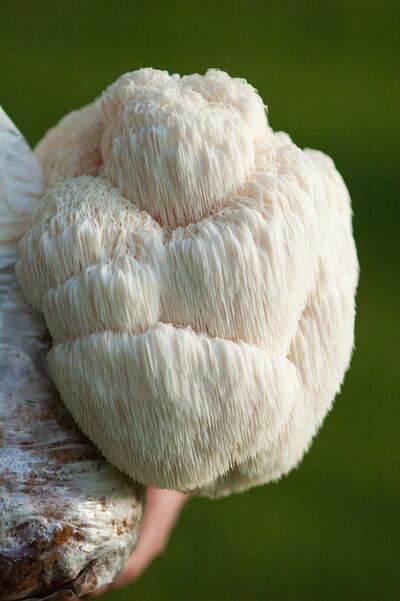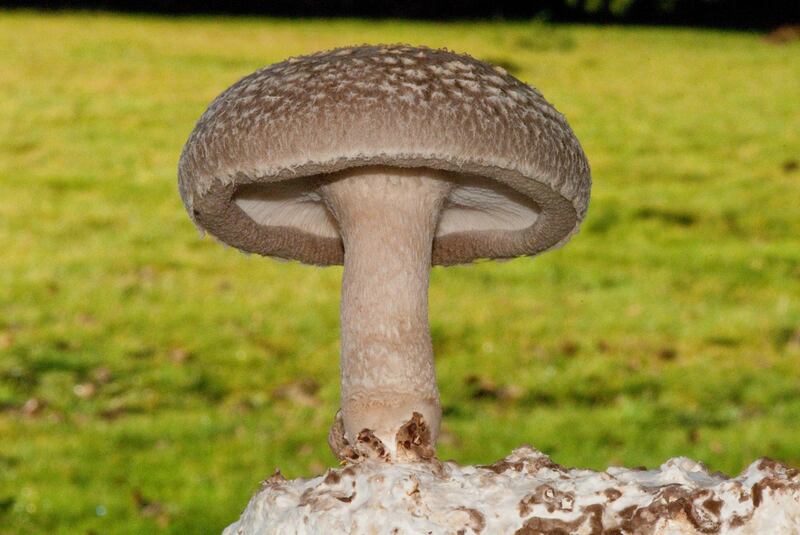Medicinal mushrooms have broken out of the ancient Chinese medicine box and made their way to the ever-growing list of superfoods and powders sought out by health-conscious foodies. Based on the search terms keyed in by its 250 million users this year, Pinterest declared superfood powders a trend, of which interest in nutrient-packed mushrooms is up by 46 per cent.
Before you set about ordering extra mushrooms on your pizza, though, it's worth knowing that the term covers an expansive list of fungi, some of which are better than others at treating or preventing certain ailments. Michael Kuo, from Mushroomexpert.com, says there are tens of thousands of species (1,100 of which he has detailed in an encyclopedia on the subject), often not as easily identifiable as birds or trees, of which the medicinal variety are also known as adaptogens.
Health benefits of eating mushrooms
Certain types of mushrooms are now being considered a superfood due to their high selenium content, which has immune-modulating properties," says nutritionist and naturopath Nour Abu-Lughod from the UAE. "Selenium-enriched fresh mushrooms can be cultivated as an excellent dietary source of the mineral, or they can be used as dietary supplements or cooking ingredients to enrich other food products with selenomethionine," adds Robert Beelman, professor emeritus of food science and director at the Centre for Plant and Mushroom Foods for Health. Having a selenium-rich diet safeguards our DNA by offering protection against the damage wrought by free radicals on human cells. The mineral is also important in reproduction and for fertility.
"I [recommend] adding mushrooms to most patients' diets due to the many nutrients they contain, especially for vegetarians and vegans as a replacement to meat," says Abu-Lughod. One of the main reasons why mushrooms are used in place of meat (think classic veggie burger patties) is owing to their high B vitamins content, including B12, which is usually found in red meat. So adding mushrooms such as the hefty portobello into a diet adds the essential vitamins that aid with keeping the nerve system and blood cells healthy, and helps to prevent anaemia.

In terms of how the consumption of mushrooms can benefit our bodies, there seems to be no end to the good they can do. Not only can they boost our energy levels and immune systems, but they also help the gut. "Mushrooms are a great fibre food and prebiotic, which helps with the formation of healthy gut bacteria. The high fibre content also balances blood sugar levels in diabetics," notes Abu-Lughod. Mushrooms further assist in regulating the thyroid gland and their high copper content aids the production of collagen, "for elasticity of skin, and joint and bone health". Mushrooms are also one of the few foods that contain vitamin D, which is a bonus when you're not getting enough early-morning sun
Medicinal mushroom varieties
For a healthy immune system and extra line of defence against a cold and other common infections, Abu-Lughod lists two types now being incorporated in the health food market. "Clinically, I use a lot of mushroom-based powder formulas containing both shiitake and reishi," she says. Shiitake is a fungi native to east Asia, but readily available worldwide, while reishi grows best in the hot and humid Asian climate.
“Just half a cup of cooked shiitake mushrooms contains 72 per cent of your daily recommended intake of copper,” she says, emphasising the importance of copper in the formation of red blood cells. “These two types also assist in the management of allergies by reducing histamine release and therefore reducing mucus congestion.”
Those not particularly taken with the taste or texture of mushrooms can consume them solely in powder form. According to global health food retailer Wholefoods Market, products containing mushroom powder are flying off the shelves. Coined “functional mushrooms”, varieties such as reishi, chaga, cordyceps and lion’s mane are now included in bottled drinks, coffees, smoothies and teas.

Meanwhile, the rich flavours of functional mushrooms also lend themselves to broths, while the earthy, creamy notes pair well with cocoa, chocolate or coffee-flavoured drinks. One to try is the Rebbl immunity elixir, which touts itself as a "creamy and indulgent drink for immunity". The coconut milk and dark cocoa drink is enriched with reishi mushroom using an ultrasonic extraction process with no solvents or alcohol. You can also add powdered reishi to your own smoothies and hot drinks. Om organic mushroom powder is available in 100 gram packs from Carrefour that cost Dh99.40, and can be worked into broths and drinks, or sprinkled into a breakfast porridge for a superfood punch to start your day.
Mushrooms to avoid
"Avoid canned mushrooms – they're the worst due to the high BPA content owing to the food container they're packaged in and they also lose a lot of their nutritional value this way," cautions Abu-Lughod. If you want to work mushrooms into your diet, she advises a mix of dry and fresh mushrooms, "as a side to your organic raw eggs, sauteed with asparagus and onions in a frittata, stir-fry and soups. They are a great addition raw to salads as well."







